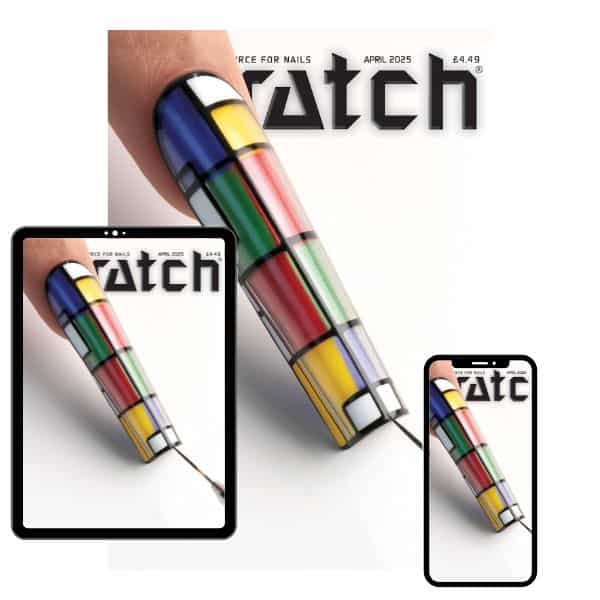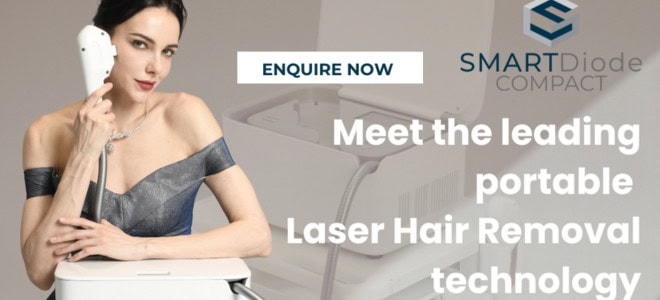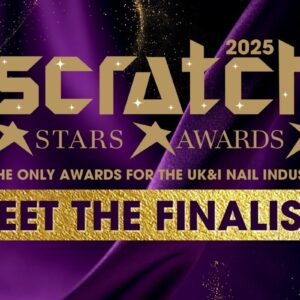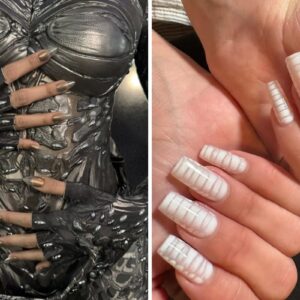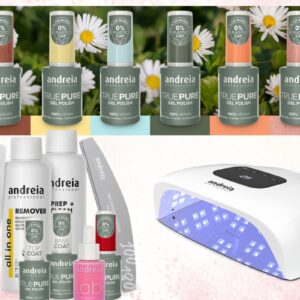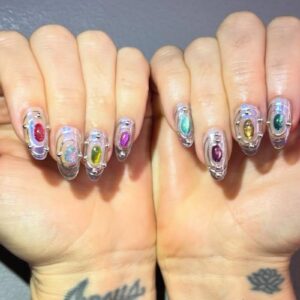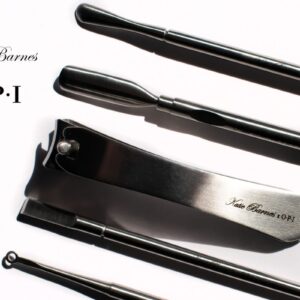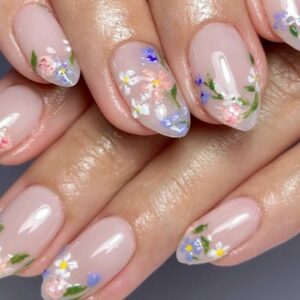
What does gaming have to do with the beauty industry?
By Rebecca Hitchon | 06 October 2023 | Feature, Technology

One positive thing to come from the Covid-19 pandemic is the connection it built between the beauty industry and the gaming world.
You may be thinking ‘why is that a good thing?’, but when you consider that gaming is traditionally recognised as a pastime for young boys and can showcase stereotypical representations of women, its collaboration with the beauty sector introduces an empowered female audience and new sense of experimentation.
During the pandemic, as virtual experiences became the ‘new normal’, the number of UK gamers rose by 28%, according to data firm, Nielsen, and these gamers included women and beauty enthusiasts. In fact, women make up 46% of the gaming population, as reported by gamer insights platform, Newzoo, and 39% of beauty consumers enjoy playing video games, while 22% enjoy esports, according to audience research company, GWI. It makes sense that these audiences overlap, with beauty and gaming both forms of self-care and escapism.
A game-changing form of advertising
The partnership between these two worlds is a popular move with consumers, but what about brands? Statistics show that the financial effects have been positive. Research by virtual store, Obsess, found that 75% of Gen Z-ers have bought a digital item in a video game, and 86% of luxury consumers who bought in- game beauty items purchased their physical versions, as reported in 2022 by consulting firm, BCG. With avatar technology becoming increasingly realistic, the argument that virtually trying on a product does not showcase its real-life appearance is weakening.
39% of beauty consumers enjoy playing video games, while 22% enjoy esports.
For beauty brands, entering the gaming sphere opens the door to new marketing opportunities, particularly physical ones. MAC Cosmetics became the first beauty brand to exhibit at a video game convention, when it was part of TwitchCon in 2019 – and NYX Professional Makeup and Benefit Cosmetics have hosted booths at the convention since. NYX Professional Makeup has also sponsored an esports organisation, alongside L’Oréal and Estée Lauder, and sponsors for the GIRLGAMER Esports Festival have included Sephora, Benefit Cosmetics, L’Occitane and Charlotte Tilbury.
Beauty brands scoring big in games
Take your mind back to the first lockdown in 2020 and there’s a high chance that you, or someone you know, played Animal Crossing: New Horizons. Beauty brands clocked the game’s popularity and didn’t hesitate to get involved. Japanese skincare brand, Tatcha, created Tatchaland, a pop-up destination in the game where players could discover products and enter scavenger hunts to win samples. Givenchy launched virtual make-up, and Gillette Venus released The Skinclusive Summer Line: inclusive skin and body fashion designs, including wrinkles, acne, cellulite, rosacea, vitiligo and prosthetics.
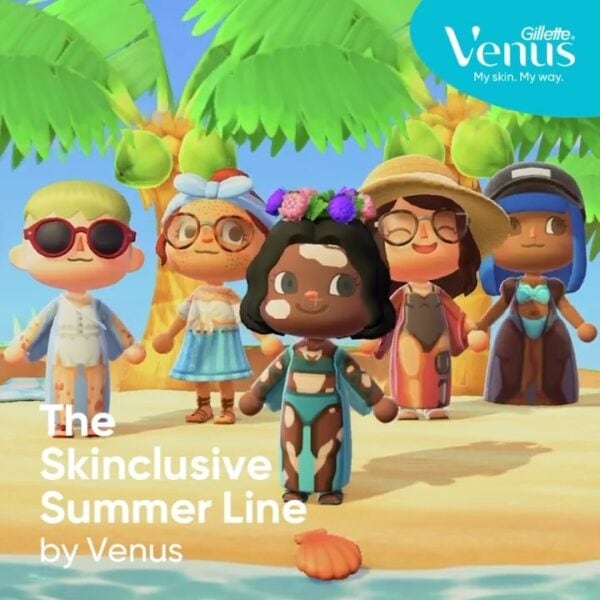
Instagram.com/gillettevenus
Elsewhere, mobile gaming app, Drest, which sees players complete styling challenges on model avatars, launched a beauty mode in 2021, debuting with an exclusive Gucci Beauty partnership. The same year, Fenty Beauty became an official partner of Riot Games to curate looks for its games, including League of Legends. Plus, Paco Rabanne’s robot-shaped Phantom fragrance was featured in action game, Curved Space, marking the first time a fragrance has been featured as a playable game character.

Instagram.com/bidstackhq
86% of luxury consumers who bought in-game beauty items purchased physical versions of the products.
But post-pandemic, has the hype around beauty products in games died down? It seems not, with the L’Oréal Group announcing a multi-brand partnership with metaverse avatar platform, Ready Player Me, last year. One of the Group’s brands, Maybelline, also collaborated with video game developer, Zygna, to launch the Mascara Merge advert, which can be played to earn points for other games. Meanwhile, NARS Cosmetics launched 90-day game, NARS Color Quest, via online platform, Roblox, in summer 2022. A beauty version of Pokémon Go aimed to grow brand awareness among young gamers, it set them tasks to collect NARS shades in the game’s tropical setting, build a virtual palette, customise their avatars and share photos of them.
Gaming’s control over beauty
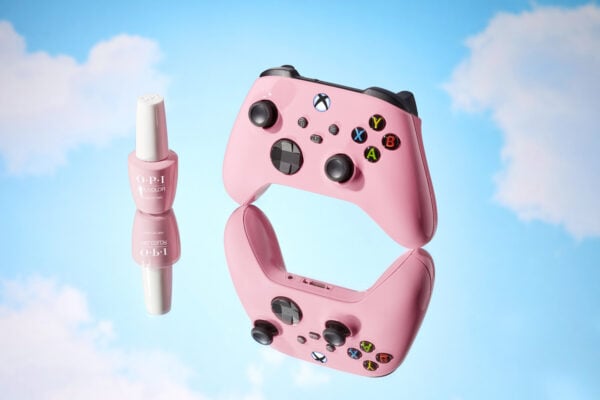 It’s not just beauty that is impacting the gaming world; gaming is having an influence on the beauty industry. From OPI’s spring 2022 nail colour collaboration with Xbox and the creation of cosmetics products for cosplay and gaming streams, to campaigns from beauty brands to support the gaming community, the influence is empowering.
It’s not just beauty that is impacting the gaming world; gaming is having an influence on the beauty industry. From OPI’s spring 2022 nail colour collaboration with Xbox and the creation of cosmetics products for cosplay and gaming streams, to campaigns from beauty brands to support the gaming community, the influence is empowering.
Take NYX Professional Makeup’s Game Out Loud campaign for Pride 2023, which brought awareness to the fact that nearly 90% of LGBTQIA+ gamers have been harassed online. The campaign profiled LGBTQIA+ gamers and at the NYX Professional Makeup HQ on the Roblox gaming platform, an NPC (non-player character) asked players to take an allyship pledge.
It follows the Real Virtual Beauty campaign from Dove, the Women in Games charity and game developers, Epic Games and Toya, after Dove research revealed that 60% of girl gamers feel a lack of diversity is a key issue in video games and 35% of young girls’ self-esteems are negatively impacted by this. Real Virtual Beauty saw the launch of a diversity course for creators, online character art collection and Roblox experience delivering self-esteem education.
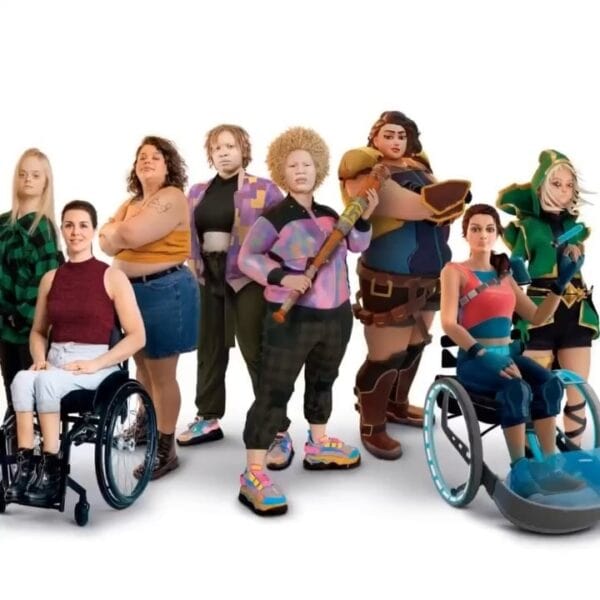
Dove’s Real Virtual Beauty campaign. Instagram.com/unilever
Plus, Benefit Cosmetics’ Game Face programme encourages gamers to share their ‘game face’ make-up looks, and last year held the Game Face Tournament Series with a prize pool of $25,500 for female players.
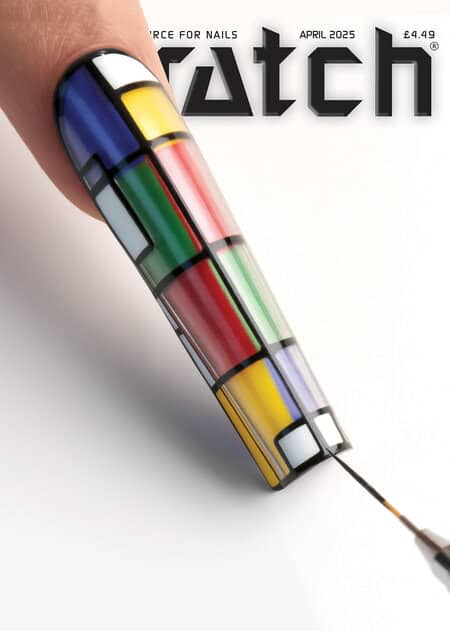
Read the latest issue
